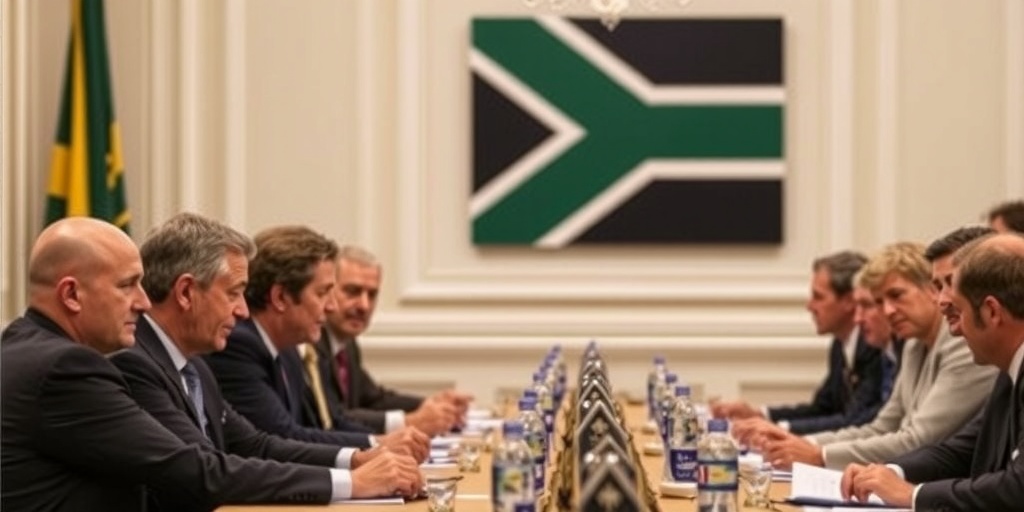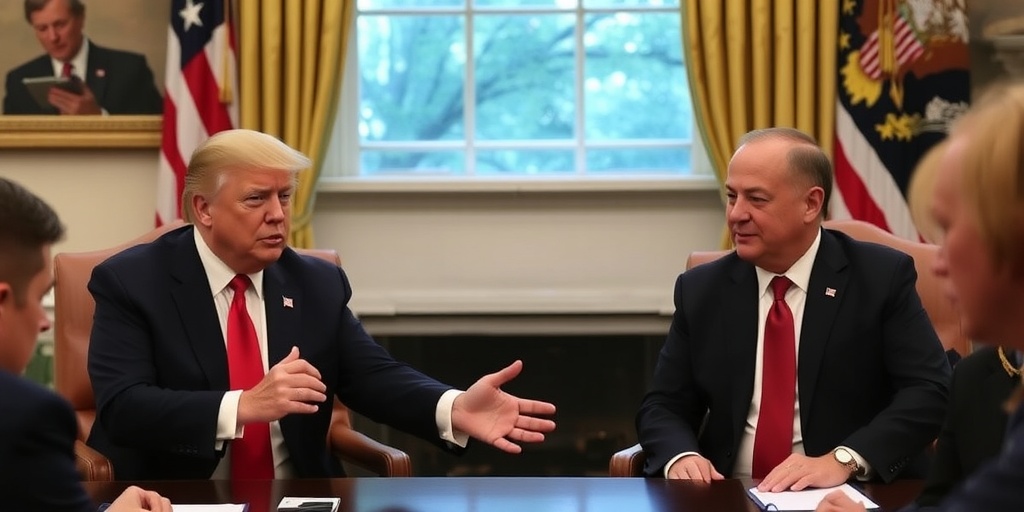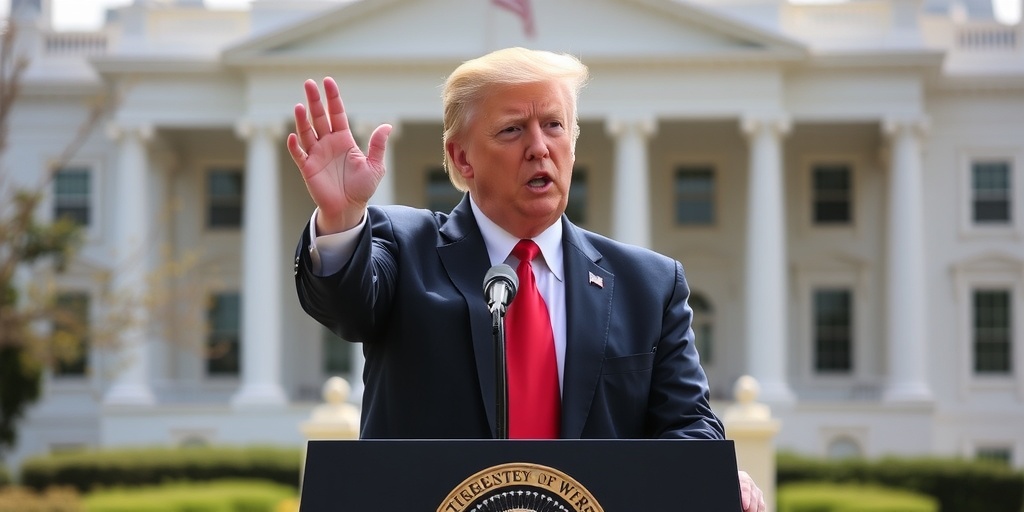Now Reading: Bessent to Skip G20 Finance Ministers Meeting in South Africa
-
01
Bessent to Skip G20 Finance Ministers Meeting in South Africa
Bessent to Skip G20 Finance Ministers Meeting in South Africa

Title: Tensions Rise as US Treasury Secretary Scott Bessent Skips G20 Meeting in Cape Town
In a notable diplomatic development, Treasury Secretary Scott Bessent has decided to skip the upcoming meeting of finance ministers and central bankers from the Group of 20 (G20) nations in Cape Town. This decision, which stems from ongoing tensions between the United States and South Africa, underscores a significant shift in U.S. foreign policy under the Trump administration, which has openly criticized South African policies as being anti-American.
Bessent’s choice to miss such a critical economic summit is an uncommon move for a U.S. Treasury secretary, especially one who has just been confirmed in the role a mere three weeks prior. His absence follows a similar boycott by Secretary of State Marco Rubio, who also opted not to attend a foreign ministers’ meeting held earlier this week in Johannesburg. Rubio justified his decision by stating that he did not want to "waste taxpayer money or coddle anti-Americanism," aligning with a broader sentiment within the Trump administration regarding multilateral engagements.
President Trump has consistently expressed skepticism about the effectiveness of multilateral meetings. Instead of participating in group discussions, he favors direct bilateral negotiations with individual nations, a strategy he believes will yield better results. The theme for this year’s G20 meetings—“Solidarity, Equality, Sustainability”—clashes with the administration’s perspective on critical issues like climate change and diversity policies, leading to reservations from U.S. officials about engaging in these talks.
The upcoming G20 meeting represented an important opportunity for Scott Bessent to interact with fellow financial leaders from key global economies such as Europe, China, and Russia. However, the decision to boycott marks a continuation of a trend towards strained relations, especially with Russia, exacerbated by the ongoing war in Ukraine. Recent statements from Trump have indicated a desire for a different approach towards Russia, signaling potential shifts in U.S. policy as the administration explores negotiations to end the conflict.
Highlighting the contentious backdrop, Trump has controversially suggested that Ukraine bore some responsibility for Russia’s invasion, calling Ukrainian President Volodymyr Zelensky a “Dictator without Elections.” These remarks further fuel the notion that the current U.S. administration is evaluating its alliances and diplomatic relations under a new lens, potentially isolating it further from traditional Western partners.
The decision by Bessent to skip the G20 meeting will likely be received as both a surprise and a disappointment by South African officials. In fact, a representative from South Africa’s Department of International Relations and Cooperation had previously expressed expectations that the U.S. Treasury Secretary would attend the high-profile gathering. By withdrawing, Bessent not only diminishes the potential for dialogue between the two nations but also raises questions about the future of U.S.-South African relations. A representative for Bessent has yet to comment on the implications of this decision.
The bilateral tensions between the United States and South Africa have escalated significantly in recent months, particularly following President Trump’s directive to halt all foreign assistance to South Africa. This decision was framed within the context of prioritizing the resettlement of white "Afrikaner refugees" in the U.S., a move attributed to the government’s actions viewed as discriminatory against landowners based on race.
The catalyst for Trump’s tougher stance involves legislation enacted by South African President Cyril Ramaphosa at the beginning of the year. The Expropriation Act, which replaces an apartheid-era law, enables the government to acquire privately owned land in certain scenarios without compensation, provided there is a justification process that includes judicial review. The law has drawn significant ire from Trump and his allies, who assert it unfairly targets white landowners.
The current trajectory of U.S. foreign policy, particularly towards South Africa, suggests a turbulent diplomatic landscape ahead. As Secretary Bessent prepares to forgo one of his first major international gatherings, it underscores the broader trend of disengagement from multinational forums, further isolating the U.S. on the global stage. The outcomes of these actions could lead to long-lasting ramifications for U.S. relations with not only South Africa but also other nations wary of or opposed to the Trump administration’s current approach to foreign affairs.
Stay Informed With the Latest & Most Important News
Previous Post
Next Post
-
 01New technology breakthrough has everyone talking right now
01New technology breakthrough has everyone talking right now -
 02Unbelievable life hack everyone needs to try today
02Unbelievable life hack everyone needs to try today -
 03Fascinating discovery found buried deep beneath the ocean
03Fascinating discovery found buried deep beneath the ocean -
 04Man invents genius device that solves everyday problems
04Man invents genius device that solves everyday problems -
 05Shocking discovery that changes what we know forever
05Shocking discovery that changes what we know forever -
 06Internet goes wild over celebrity’s unexpected fashion choice
06Internet goes wild over celebrity’s unexpected fashion choice -
 07Rare animal sighting stuns scientists and wildlife lovers
07Rare animal sighting stuns scientists and wildlife lovers




















